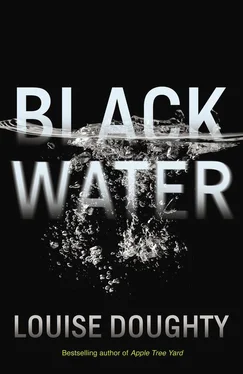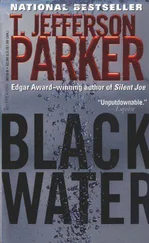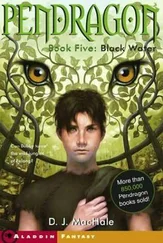Louise Doughty
Black Water
For Sylvia and Keith
with love
The biggest threat to world peace? Young men between the ages of eighteen and twenty-five, especially if they are unemployed, unmarried and don’t own property.
DR CLAYBORNE CARSON
He may be a son-of-a-bitch but he’s our son-of-a-bitch.
FRANKLIN D. ROOSEVELT, on President Somoza of Nicaragua (attribution disputed)
Working in the fields, we wore out our hats quickly.
PRAMOEDYA ANANTA TOER, The Mute’s Soliloquy
I Monkey Donkey Owl (1998)
He woke every night at the same time, the small hours — when it was darkest. His upper torso jerked; his eyes opened. His hand flailed for the lamp on the bedside table but met the impediment of the mosquito net. It took a moment or two to lift the net and find the switch on the base of the lamp, then he would sit upright, breathing heavily, absorbing the paradox of having woken so hot that he was damp and cold.
The electricity supply was unreliable during the day but at night the light came on immediately. The net was made of tough, opaque cotton and surrounded the bed. It was like being in a tent: outside, out there. The blood would rush in his ears so loudly that he could hear nothing else for a moment or two. He would breathe deeply, trying to still his heart and listening, then remind himself that he was not out there but in a large and comfortable hut, with ornate wooden doors and a rectangular block held in thick brackets barring them shut.
The hut was halfway up the hillside but the sounds of the rushing Ayung River filled the valley, the clamour and clamber of water over boulders. The rainy season had ended late that year and the river was still full. Night did something odd to the sounds around the hut: it was hard to tell how far or close they were — the scud and scramble of squirrels across his roof, the thump of something heavier, a monkey perhaps, also on the roof, or was it on the veranda? The veranda would creak, on occasion — it was supported by tall stilts and so impossible for anyone, or anything, to walk across it without making a noise.
Sometimes, he thought he heard a light scratching at the base of the wooden door. A river rat, perhaps? Did they come this far up the hill at night? He had seen several of them on his walks along the valley, black and quick, lolloping between the fat green leaves of undergrowth. At other times he would think, yes, there is definitely a creature on the roof. He would listen to the claw scratchings above him become more regular, and the scrit-scrit would turn into a pit-pit , pause, pit-pit-pit , which blossomed into the sound of rain. The clamour mounted rapidly then, until it was so deafening even the river became inaudible, water drowned beneath water.
In daylight hours, he liked to stand on the veranda and watch the rain, a wall of it so solid it seemed to fly upwards as well as down. In daylight it was beautiful — as long as you didn’t have to go out in it — but during the hours of darkness the torrent closed the world down, masked all other noises: there was nothing but rain.
He had only been in the hills for a week but it felt much longer. The errors of judgement he had made still filled his head. Henrikson, that knucklehead, walking in like he owned the place. Well, at least Wahid and Amber had seen through him; and that journalist — he couldn’t believe he’d let her play him — then, to cap it all, Amsterdam constantly questioning his ability. He went over and over his conversations with them in the hot dark hours when he lay awake, trapped in a maze of reasoning.
The last two nights, the fear had got worse. The noises on the roof had begun to mutate. He would wake now, more violently each night, certain that what he could hear was the sounds of feet on floorboards, not outside on the veranda but inside the hut, creeping closer and closer to his bed. At such times, his fear would mount so rapidly that all he could do was lift the mosquito net and climb down from the bed and patrol the hut, restlessly, looking under the table, opening the cupboard in the corner, peering into all the dark corners where the lamplight could not reach. Then he would need to urinate, and he would force himself to slide the block from its wooden brackets and push one of the doors outwards. He would defy the darkness by standing there for a moment, staring out at the pitch black, the dim light behind him casting a huge shadow across the veranda, and he would step over the carved doorframe towards the rail, piss mightily out into the dark, go back inside, slide the wooden block across and check every corner of the hut all over again, as if someone or something might have sneaked past him, although this time the ritual was calmer, because he had invited an intruder by opening a door and so it was less likely to happen. He had proved to himself that he was not afraid. They only came when you were afraid.
Eventually, he would get back into bed and turn off the lamp, his heart stilled. The ritual search, the bravado of opening the door, had convinced him that his fears were groundless, nothing more than the irrationality of night. He would lie back and close his eyes, pulling the sheet over his shoulder. He would just be drifting back to sleep. . And it would come, then, when he was at the point of sinking back into unconsciousness. Always then: the ghekko’s honking cry, on the roof right above his head, only feet away, sudden and loud in its malevolence and echoing above all the other sounds. Eh -ur! A derisive, taunting pause. Eh- ur! He would be upright again, sweating again, furious and terrified at its warning. Eh- ur!
He would cry out then, shout out loud, and bang the sides of his hut to frighten the creature away. Wasn’t it dawn soon? Where was Kadek?
That particular night, the night he knew, the ghekko’s call was so loud, so inevitable, that he didn’t even bother to bang against the walls of his hut, just sat up, breathing heavily, put the light on and slumped with his head in his hands, as if to say to the ghekko, okay, you win.
It came to him then, what was going to happen. They were going to kill him. Take a break for a while , Amsterdam had said. Go up to the hills, we have a little place outside of town, it’s been used before. Have a rest, you’ve earned it. When we’ve talked to the West Coast, we’ll let you know. He had wondered, at the time, why they had to talk to the West Coast at all. They had sent in Henrikson, after all. If Amsterdam was certain he was finished they should have recalled him immediately. Why send him up to the hills — unless they wanted him out of the picture if the press ran with that story? Well, that was what he had thought at the time. Now though, in the dark of night, the decision to send him here took on a different meaning.
So, that was it. He had become a liability. He had outlived his usefulness, even though it wasn’t him that had wanted to come back out here in the first place; they had had to twist his arm. How ironic was that?
This certainty was something new; something solid at last. He lay back on the bed and, for the first time since he had arrived on the island, allowed himself to close his eyes and listen to the ghekko without fear.
The roof above him creaked, the night insects chirruped and hollered — but there was no rain. One thing he was sure about: they would wait for rain.
In the morning, he was woken by the dawn light and the cicadas’ tuneless chorale. A dream had come to him in the night, just before waking, it felt like — he couldn’t recall it, but was sure he had dreamt. There was an image in his head of a man in an open-necked shirt, smiling at him in greeting, and a feeling of fear and horror. The image made no sense. He shook his head to rid himself of it.
Читать дальше












